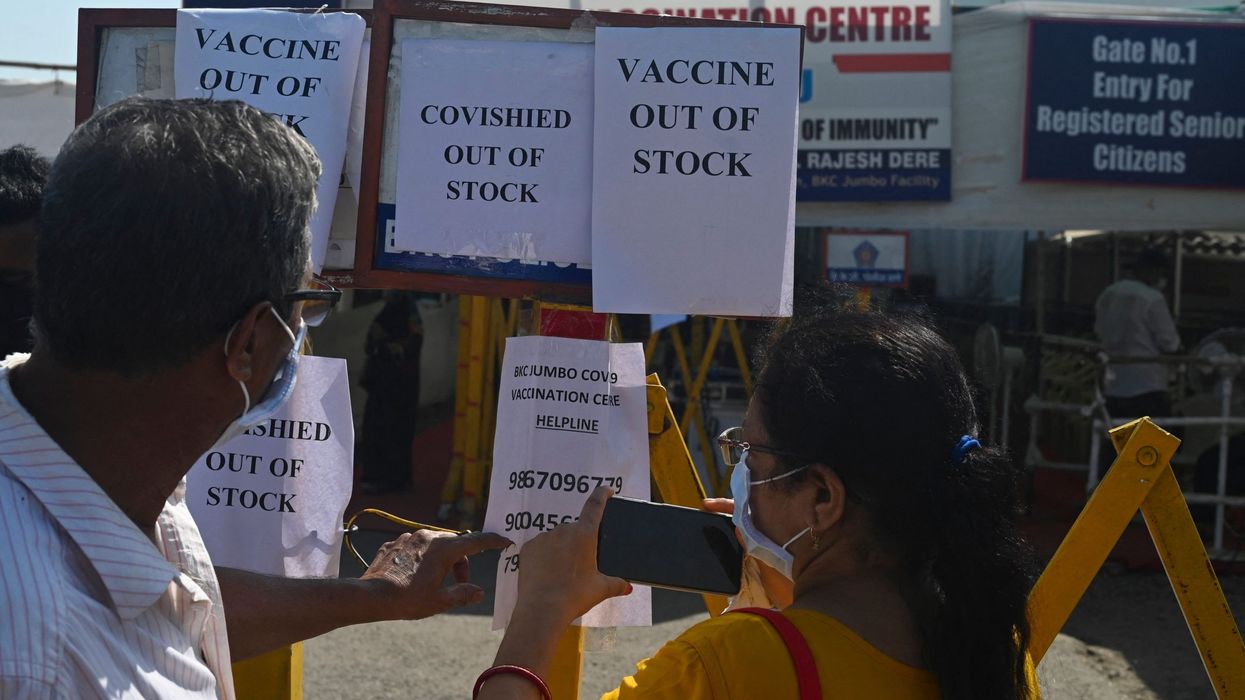India, the country currently being hit hardest by the pandemic, on Tuesday (20) reported its worst daily death toll, with large parts of the country now under lockdown amid a fast-rising second wave of infections.
The health ministry said 1,761 people had died in the past day, bringing India's toll to 180,530, still well below the 567,538 deaths reported in the United States, though experts believe India's actual deaths are far more than the official count.
The world's second most populous country is grappling with its biggest public health emergency after it lowered its guard when coronavirus infections fell to a multi-month low in February, health experts and officials say.
The US Centers for Disease Control and Protection has said all travel should be avoided to India, while Britain's prime minister Boris Johnson cancelled an official trip to New Delhi that had been scheduled for next week, and his government said it will add India to its travel "red list".
Several major cities are already reporting far larger numbers of cremations and burials under coronavirus protocols than official COVID-19 death tolls, according to crematorium and cemetery workers, the media and a review of government data.
The crisis in hospitals has left people fighting for beds, oxygen and medicines, and doctors said the shortages will inevitably lead to more deaths.
"The huge pressure on hospitals and the health system right now will mean that a good number who would have recovered had they been able to access hospital services may die," said Gautam I. Menon, a professor at Ashoka University.
On Tuesday, the health ministry reported 259,170 new infections, a sixth day over 200,000 and getting closer to the peak of nearly 300,000 seen in the United States in January.
Total coronavirus cases in India are now at 15.32 million, second only to the United States, with epidemiologists saying far more infectious new variants were one of the main factors behind the latest surge in cases.
VACCINATIONS DRAG
Opposition leader Rahul Gandhi - who has also addressed Congress party election rallies in recent weeks - said he had tested positive for the virus.
The hardest-hit western state of Maharashtra announced fresh curbs, restricting opening times for grocery shops and vendors to just four hours a day.
Further north, the capital city Delhi suffered a record overnight death toll following a surge in infections, and began a six-day lockdown late on Monday.
Media reports said the city's chief minister Arvind Kejriwal had gone into isolation after his wife tested positive.
People in Delhi and towns of the populous northern state of Uttar Pradesh put out desperate calls for help on Twitter, asking for assistance getting their families into hospitals. Others reported dire shortages of oxygen and the anti-viral drug Remdesivir.
Diagnostics firms in big cities were virtually overwhelmed by the numbers of coronavirus tests being sought, officials said.
Manish Tewari, an opposition lawmaker, said on Twitter that a "monumental tragedy of epic proportions is unfolding across India. No hospital beds, no oxygen, no vaccination."
Stung by criticism that the government had failed its people, prime minister Narendra Modi ordered vaccinations on Monday for anyone above the age of 18 to be given from May 1.
So far, 109.6 million people have received a first dose, according to a government portal, a small portion of India's 1.3 billion population.
India's daily vaccinations peaked at 4.5 million doses on April 5, but have averaged about 2.8 million a day since, government data showed.




